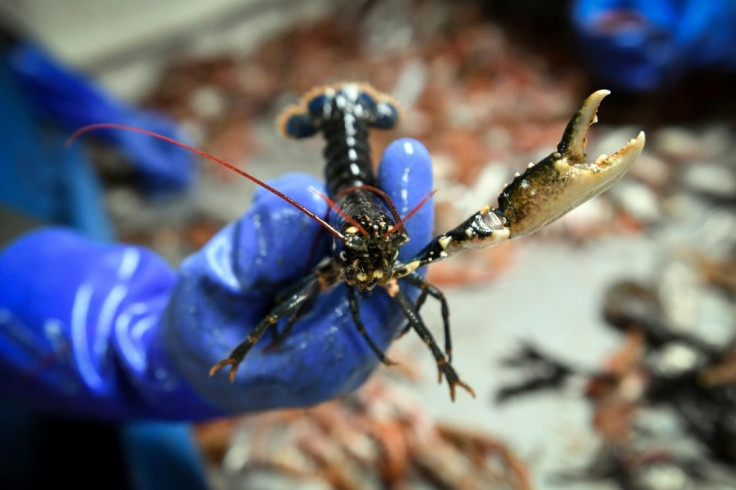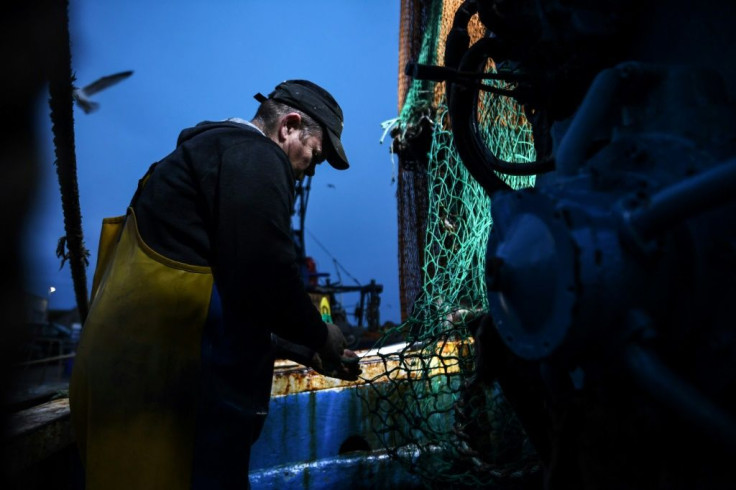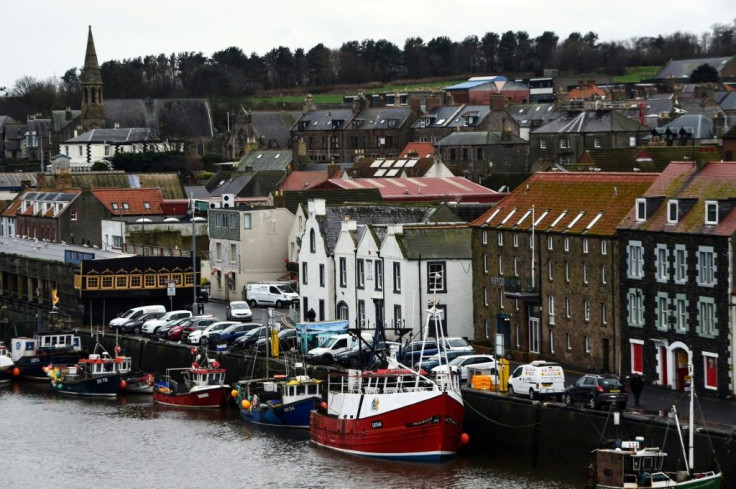Scottish Seafood Sector Warns Brexit Risking Its Future
New post-Brexit rules could sink Scotland's fishing industry, fishermen and seafood exporters have warned, after chronic delays hit shipments in a sector that relies on rapid delivery of fresh produce.
"If we can't get it sorted and we cannot get it repaired then the shellfish industry in this country will be finished," fisherman Bob Teviotdale told AFP this week from Arbroath harbour on Scotland's North Sea coast.
Standing aboard his trawler next to lobster creels and buckets filled with crabs, he detailed the logistical tightrope now being stretched by post-Brexit bureaucracy.
"We usually get our stuff picked up in the afternoon and from then on it starts a journey through the country to the borders, onto the ferries, then shipped to France," Teviotdale explained.

"Obviously with the Brexit and the different rules and regulations the guys are starting to struggle. The people who we sell to, our merchants, it's become unviable because they get too much loss."
Britain formally left the European Union last January but remained within its regulatory orbit until the end of the year under the terms of its divorce.
Although the two sides struck a free-trade deal last month, avoiding trade tariffs and quotas, the UK's departure from the EU single market and customs union has resulted in reams of red tape.
Some Scottish fishermen are reportedly choosing to keep their boats in port rather than risk their catch being caught up in the delays.

Instead of being shipped straight to market in northern France, and then to tables across Europe, highly-sought seafood shipments face going straight into landfills.
Some others sail an additional 48 hours to offload their catch in Denmark, according to Bloomberg News.

Seafood Scotland chief executive Donna Fordyce said the country has been impacted most by the new regulatory regime because it exports such large volumes of the fresh produce into Europe.
Unlike the rest of the UK, Scotland, which is home to 5.5 million people, voted by a majority to remain in the EU.
Opposition to Brexit has fuelled support for a fresh vote on independence, despite Scots rejecting going it alone in 2014.
"We rely on the European market," said Fordyce.
"So we've been hit quickly, the fastest, and now the other English companies are now starting to feel that effect as well.
"They're all starting to experience the same," Fordyce added, noting the industry's concerns were shared in an internal conference call this week.
Prime Minister Boris Johnson, a prominent Brexiteer in the 2016 referendum on EU membership who displaced ex-premier Theresa May in Downing Street in 2019 over her desire to remain more closely aligned with the bloc, has labelled the problems "temporary administrative issues".
His government is vowing to compensate those negatively impacted by the changes, but precise details on the level of financial aid are yet to be provided.
"We are looking to compensate the fishing industry given they face temporary issues, and we accept that this may have been through no fault of their own," Johnson's spokesman told reporters Thursday.
But Allan Miller, chief executive of export company AM Shellfish, said the costs now involved in shipping seafood to Europe were "astronomical" and that the long-term numbers might not add up.
"This is all going to impact back on the fisherman," he warned.
"Put the prices too low to the fishermen, they can't go out and fish because it's physically not possible to work for the prices we are quoting.
"So we need things to streamline, (be) cost-effective, work properly so everything is in place for us to do our job."
© Copyright AFP {{Year}}. All rights reserved.




















